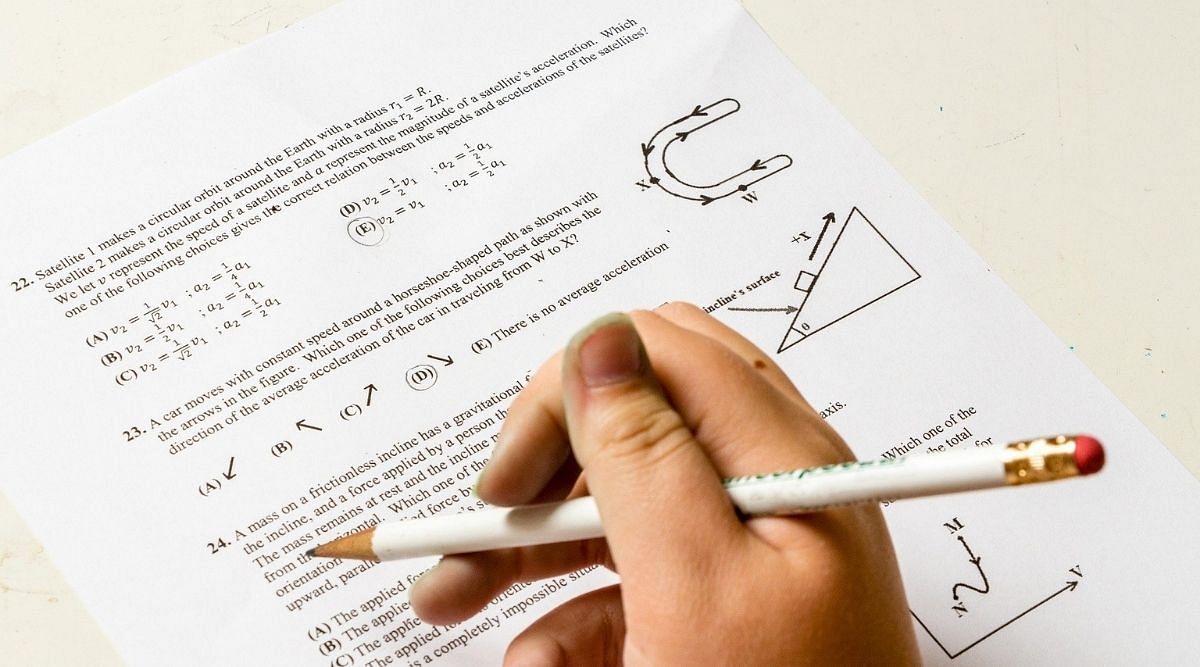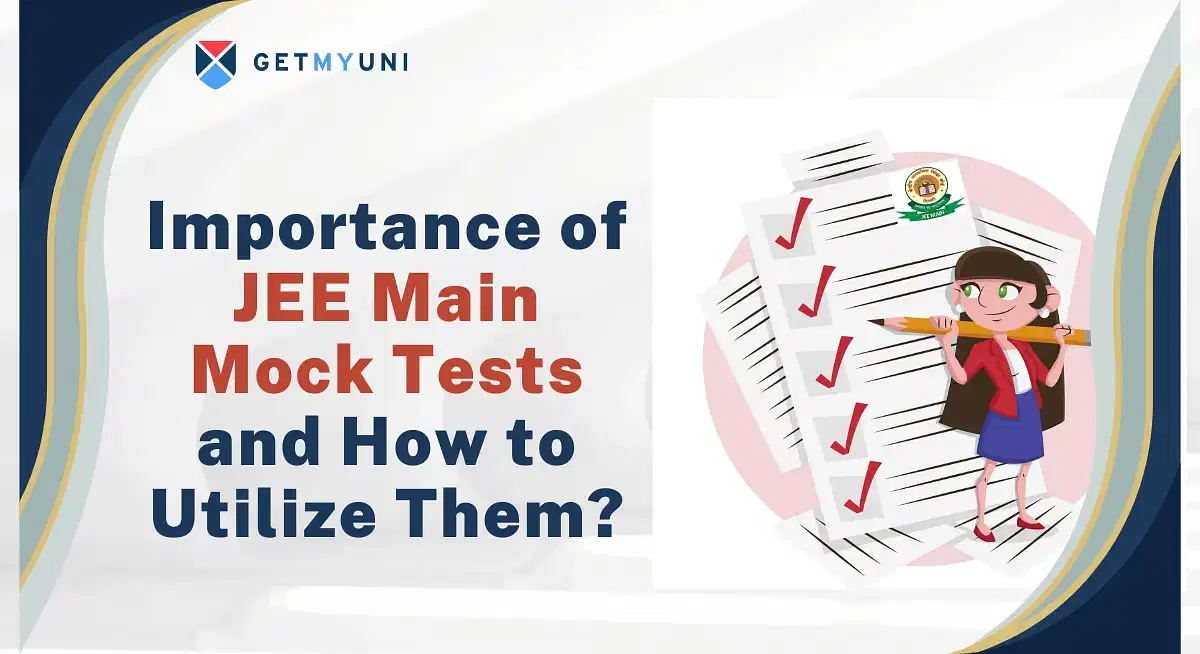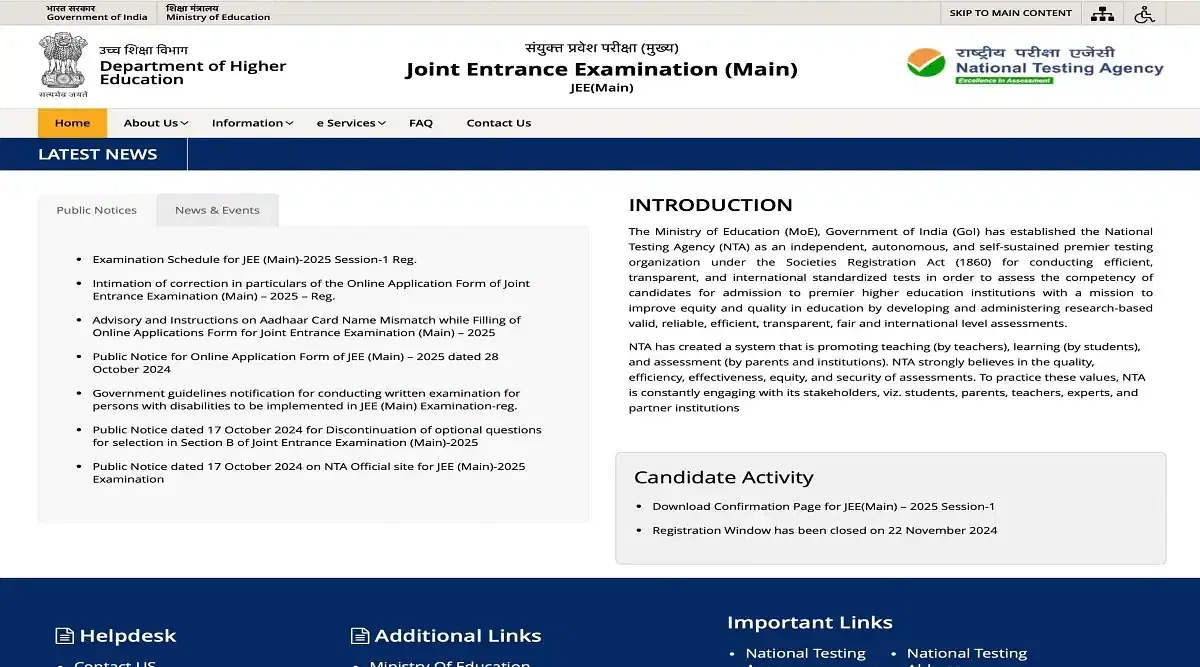GATE exam is an engineering entrance exam for getting admission in engineering colleges for higher studies while IES exam is a UPSC exam conducted to recruit engineers.
Table of Contents
- What is the GATE Exam?
- What is the IES Exam?
- Key Differences Between GATE vs IES Exam
- Eligibility Criteria for GATE vs IES Exam
- Exam Pattern for GATE vs IES Exam
- Syllabus for GATE vs IES Exam
- Difficulty Level for GATE vs IES Exam
- Career Scope After GATE vs IES Examination
- GATE vs IES Exam: Which is Better?
GATE exam is an international level examination conducted for getting admission in top engineering colleges like IIT, MIT etc while the IES exam is held to recruit highly qualified engineers in government service.
Both the exams are highly competitive in nature yet students wanting to study engineering with google faculty can go for the GATE exam. On the other hand, aspiring engineers wanting to work can opt for IES examination after their studies.
What is the GATE Exam?
The Graduate Aptitude Test in Engineering is an All-India test administered in eight regions of India, conducted by the GATE Committee. It assesses students' knowledge of engineering and science subjects. Based on the GATE results, students get admission to top engineering colleges nationwide.
Also Read: GATE 2025 Preparation Tips from Toppers & Experts
What is the IES Exam?
IES Examination is a civil service examination conducted by the UPSC authorities for recruiting well qualified candidates to class 1 engineers or officers. These officers are appointed all across the nation in various departments.
They are in charge of any one of the departments like Indian Railways, Power, Telecommunications, Engineers' Service for the Defence and Central Water Engineering etc.
Also Check: IES Exam Dates
Key Differences Between GATE vs IES Exam
Amongst GATE and IES examinations there are a wide range of differences that makes them stand apart from each other. Candidates can go through the Key differences between GATE and IES exam stated below.
| GATE Exam | IES Exam |
|---|---|
| The GATE exam is conducted to select candidates for studying PG engineering courses in top universities. | The IES exam is conducted to recruit engineers in the government departments. |
| The GATE exam paper consists of various undergraduate level engineering questions | The IES examination consists of undergraduate and postgraduate level questions. |
| After completion of the GATE exam candidates can study their desired PG engineering courses | After cracking the IES examination, students will be employed as Class 1 Engineers in the government departments. |
| After GATE results candidates can go abroad for studies or pursue a PSU job. | The IES exam selects engineers to qualify and work at various Indian departments and manage various tasks |
Also Check: GATE Information Brochure 2025 (Released) - Download PDF
Eligibility Criteria for GATE vs IES Exam
Among GATE vs IES exam the eligibility criteria for both the exams are different. Students can go through the GATE and IES exam eligibility criteria stated below.
| GATE Exam Eligibility Criteria | IES Exam Eligibility Criteria |
|---|---|
|
|
Also Check: What is a Good GATE Score 2025?
Exam Pattern for GATE vs IES Exam
The exam pattern for both the exams vary based on various determinants. Candidates can find the GATE and IES exam pattern stated below.
GATE Exam Pattern
The GATE exam pattern consists of MCQs, MSQs, and NAT questions, and the GATE exam duration is three hours. Marks distribution consists of 15 marks: AR, CY, DA, EY, GG, MA, PH, ST, XH, and XL will be for General Aptitude and subject questions, which is 85, which consists of marks.
There will be a total of sixty five questions in the GATE exam. The GATE exam will be held in General Aptitude for 100 marks. Approximately 28% of the total marks in the papers will be allocated to Engineering Mathematics.
As per the marking scheme, for 1-mark MCQ, 1/3 mark will be deducted, and for 2-mark MCQ, 2/3 mark will be deducted on every response. Students can go through a brief about GATE exam pattern 2025 stated below.
| Particulars | Details |
|---|---|
| Exam Mode | Online - Computer-Based Test |
| Number of Questions | 65 |
| Total Marks | 100 |
| Number of Subjects (Papers) | 30 |
| Type of Questions | MCQs (Multiple Choice Questions), Multiple Select Questions (MSQ), and NAT (Numerical Answer Type) |
| Language | English |
| Number of Sections | General Aptitude+ Candidates selected Subjects |
| Name of the Sections | General Aptitude, Engineering Mathematics* and Subject Specification Section* In place of Engineering Mathematics, Chemistry will be compulsory for Life Science (XL) Paper |
| Marking Scheme | Questions carry 1 mark and 2 marks |
| Negative Marking | For a wrong answer chosen in an MCQ, there will be a negative marking.For 1-mark MCQ, 1/3 mark will be deducted for a wrong answer.For 2-mark MCQ, the 2/3 mark will be deducted for a wrong answer.No negative marking for MSQ & NAT. |
Also Read: Important & High Scoring Topics for GATE 2025
IES Exam Pattern
The IES exam pattern differs for prelims, mains and personality test evaluation. The exam pattern for prelims test consists of paper 1 and paper 2 which is held for a total of 500 marks for each subject. The paper 1 consists of general aptitude and engineering aptitude while paper tw consists of category wise engineering subject.
Furthermore, The Mains paper is held for 600 marks for 6 hours where each paper is of 300 marks and the exam is conducted for three hours. On the other hand, a personality test is conducted for 200 marks. Students can go through a brief about the exam pattern stated below.
| Particulars | Details |
|---|---|
| Prelims Exam | 500 marks |
| Mains Exam | 600 marks |
| Personality Test | 200 marks |
Also Read: GATE vs JEE Advanced - Complete Guide
Syllabus for GATE vs IES Exam
The GATE and IES exam syllabus are totally different from one another in terms of topic and in terms of subjects. Candidates can go through the GATE and IES syllabus stated below.
GATE Exam Syllabus
The GATE syllabus 2025 is divided into General Aptitude and Core Discipline, with General Aptitude having 15% weightage and Core Discipline and Engineering Mathematics subjects having 85% weightage. Candidates must review the GATE exam pattern and marking scheme for better understanding of the syllabus.
IES Exam Syllabus
The IES exam syllabus is very customised as per the engineering streams. Every engineering subject has different topics included in paper 1 and paper 2. Candidates can go through the syllabus topics and understand the IES exam syllabus subject wise. Students have to prepare paper 1 and paper 2 based on the specialisation they want to choose for exam preparation.
Difficulty Level for GATE vs IES Exam
There are different difficulty levels for the GATE and IES examination. In comparison, among the two exams, GATE is a comparatively more difficult examination.Candidates have to apply multiple concepts to crack a problem in the GATE exam paper. The GATE exam is very time consuming as students have to spend more time on each question.
On the other hand, in the IES examination, questions can be solved using one or similar concepts. Further, students don’t require to spend time on one question for longer periods.
Also Read: GATE 2025: Admit Card (Jan 4), Exam Dates (Feb 3, 4, 10 and 11)
Career Scope After GATE vs IES Examination
There are a wide range of opportunities available for students after the GATE and IES exam. Students can go through a wide range of opportunities after each of the exams mentioned below.
Career Scope after GATE Exam
The GATE exam is a requirement for admission to postgraduate programs at IISC, IITs, and NITs. The process begins with qualifying for the GATE test and clearing cut-offs for individual colleges. Final admission is conducted through an interview.
The GATE counselling is undertaken after the GATE results are announced on the official website. After this stage, students can be admitted to their allotted colleges. Candidates can go through a set of careers that can be pursued after the GATE exam, as stated below.
Public Sector Undertaking (PSUs) Jobs
The GATE exam gained popularity due to PSUs' MOU with IITs, which have attractive features and allow high scores to secure direct government positions. Candidates can go through the advantages of PSU jobs stated below.
- High salary packages
- Good Work-life balance
- Extra benefits within the subsidised rate
- Higher Education Opportunities
Ph.D. Admission
The Ph.D. admission process involves submitting a GATE score, a statement of purpose, and an interview panel based on the candidate's area of interest. Thus, GATE scores are essential for Ph.D. studies, and candidates can go through the perks of studying a Ph.D. course given below.
- Prospects for international research
- Research assistantship during the period
- Opportunities to work on Assistant Professor positions at IITs and IIITs.
Careers After IES Exam
IES officers are assigned to various departments based on merit, receive training from the President, and are called to multiple sites nationwide. They earn a salary equivalent to or higher than that of the private sector and are awarded Dearness Allowance to compensate for market inflation.
The position offers perks and is better than any other employment in the country. As stated below, candidates can go through various departments where IES officers are placed.
Electrical Engineering
- Indian Skill Development Service
- Central Power Engineering Service
- Military Engineer Services
- Central Electrical Mechanical Engineering Service
- Indian Defence Service of Engineers
- Asstt. Naval Store Officer
- Central Power Engineering Service
Civil Engineering
- Central Engineering Service
- Central Engineering Service (Roads)
- Survey of India
- Indian Defence Service of Engineers
- AEE(QSC) in MES Surveyor Cadre
- Central Water Engineering
- Indian Skill Development Service
- Military Engineer Service
- Border Roads Engineering Services
Electronics and Communication
- Indian Radio Regulatory Service
- Junior Telecom Officer
- Defence Aeronautical Quality Assurance Service/SSO‐II
- Indian Telecommunication Service
- Indian Naval Armament Service
- Asstt. Naval Store Officer
- Central Power Engineering Service
- Indian Skill Development Service
Mechanical Engineering
- AEE in Geological Survey of India
- Indian Skill Development Service
- Central Power Engineering Service
- Indian Defence Service of Engineers
- Border Roads Engineering Services
- Central Water Engineering
- Central Power Engineering Service
- Indian Naval Armament Service
- Asstt. Naval Store Officer Grade‐I
- Military Engineer Services
Also Read: GATE Data Science and AI Syllabus 2025: Download PDF
GATE vs IES Exam: Which is Better?
Choosing between GATE and IES exam can be challenging as both the exams have good perks to offer. Below given are some of the pointers students must consider while selecting among GATE and IES exam.
- Candidates wanting to pursue higher studies in engineering can opt for GATE as they can get into the best universities. On the other hand, the IES exam is for those candidates willing to work as engineers in government jobs.
- The GATE exam is also beneficial for PhD students as it will help them to get into their desired course but the IES exam is conducted to recruit highly qualified engineers in the government.
- The GATE exam is one of the toughest national exams for masters courses in the country while the IES exam is easier as it is conducted for recruitment in various technical roles in the government sector.
Also Check: Last Minute Preparation Tips for GATE 2025
The GATE exam is considered tougher than the IES exam considering the multiple concepts and formulas that need to be applied in solving each question. The IES exam is comparatively less critical and challenging as it can be solved using simple concepts and preparation.



























POST YOUR COMMENT